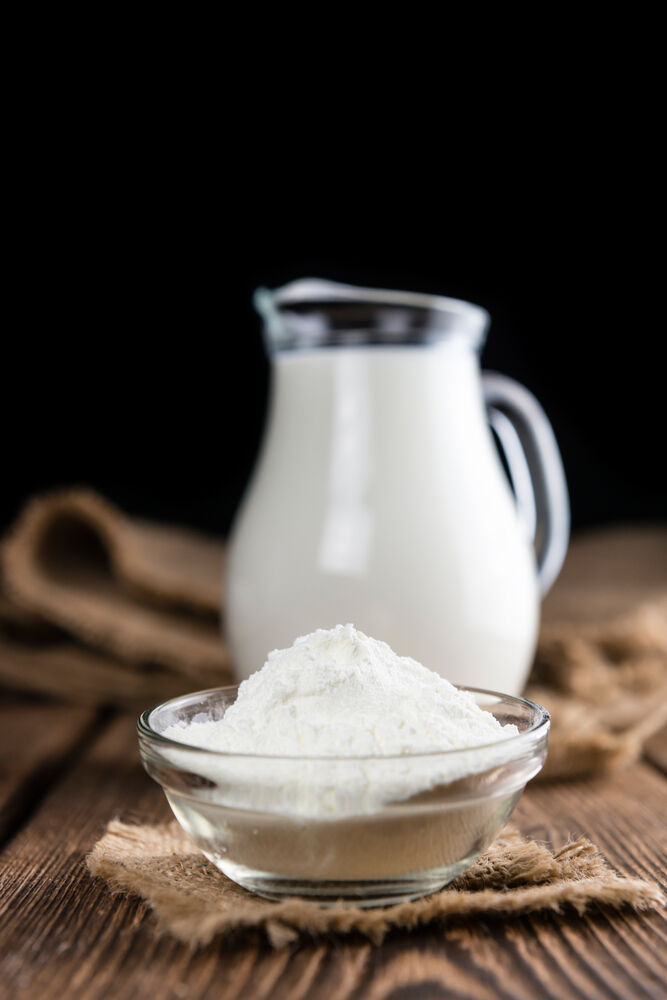
What Is Milk Protein?
Milk Protein is a type of protein that is derived from filtered milk and Is formed from whey and casein proteins. Milk protein is generally treated in a way that will keep these proteins close to their natural state, but in a purer form. The gentle purification process Milk Protein goes through ensures any denaturing or changing of the proteins is minimized and the amino acid profile remains excellent. The Milk Protein yielded is an excellent source of calcium, high in branch chain amino acids and low in fat. In this article we will investigate exactly what Milk Protein is and what makes it such an effective, if sometimes overlooked, protein source.
What is Milk Protein
Often overshadowed by Whey Protein, Milk Protein is formed from predominantly casein and some whey proteins that are constituents of milk. These elements are purified when milk is taken and gradually purified into Milk Protein. Carbohydrates and fats are removed during this process and Milk Protein Concentrate or Isolate is created. A lot of people tend to look at the low amount of whey in Milk Protein with the view that Whey Protein is the only good protein source. Whey Protein is a very good protein source and it is rapidly digested. This does not however, make it an ideal all-purpose protein source. In fact, the high casein content within Milk Protein makes it an excellent protein source, with a rich amino acid profile. This profile is rich in branch chain amino acids and provides a much more prolonged delivery to the muscle fibres.
Slow Release Milk Protein
As the proteins within Milk Protein are left as close to their natural state as possible, it takes the body longer to digest. This makes Milk Protein ideally suited as a sustained release protein source and a great choice as a bedtime protein or for in-between meals. As Milk Protein is gradually digested, it forms a gel in the gut which is gradually absorbed over a period of hours. This provides a prolonged source of amino acids that will continually be used by the body.
Milk Protein and Protein Synthesis
Milk Protein does not have a huge effect on protein synthesis as it enters the bloodstream so slowly. However, studies have shown Milk Protein to enhance protein synthesis for a considerably longer time than whey. The slow release properties of Milk Protein make it excellent in preventing any muscle protein breakdown. You don’t want your hard earned muscle to be broken down overnight as the body starts feeding off itself. Seeing as the amount of protein you can ingest before sleep is limited, you have to make the nature and quality of this protein count. Other protein sources such as Whey Protein are rapidly absorbed and are less suited for this specific time. Without going into all the different types of protein, I’ll address the most common ones used to give a better idea of absorption times:
– Hydrolysed Whey Protein: 10-30 minutes
– Whey Protein Isolate: 30-60 minutes
– Whey Protein Concentrate: 60-90 minutes
– Milk Protein: Up to 7 hours
Milk Protein and Protein Breakdown
Looking at these times there really is no competition. The properties of Milk Protein make it the best thing to take before bed and also through the day (when protein isn’t immediately required). When trying to build muscle, you need to tip the balance of protein synthesis and protein breakdown in your favour. No matter how much protein synthesis you manage through training and diet, this cannot be truly maximised until you address protein breakdown. Potentially this breakdown could undo all the hard work put in through the day. The majority or muscular repair and growth takes place while you are asleep and you cannot afford to starve your body of protein at this important time. Therefore feeding Milk Protein at these times can be an important tool in your supplement arsenal.








No Comments yet!